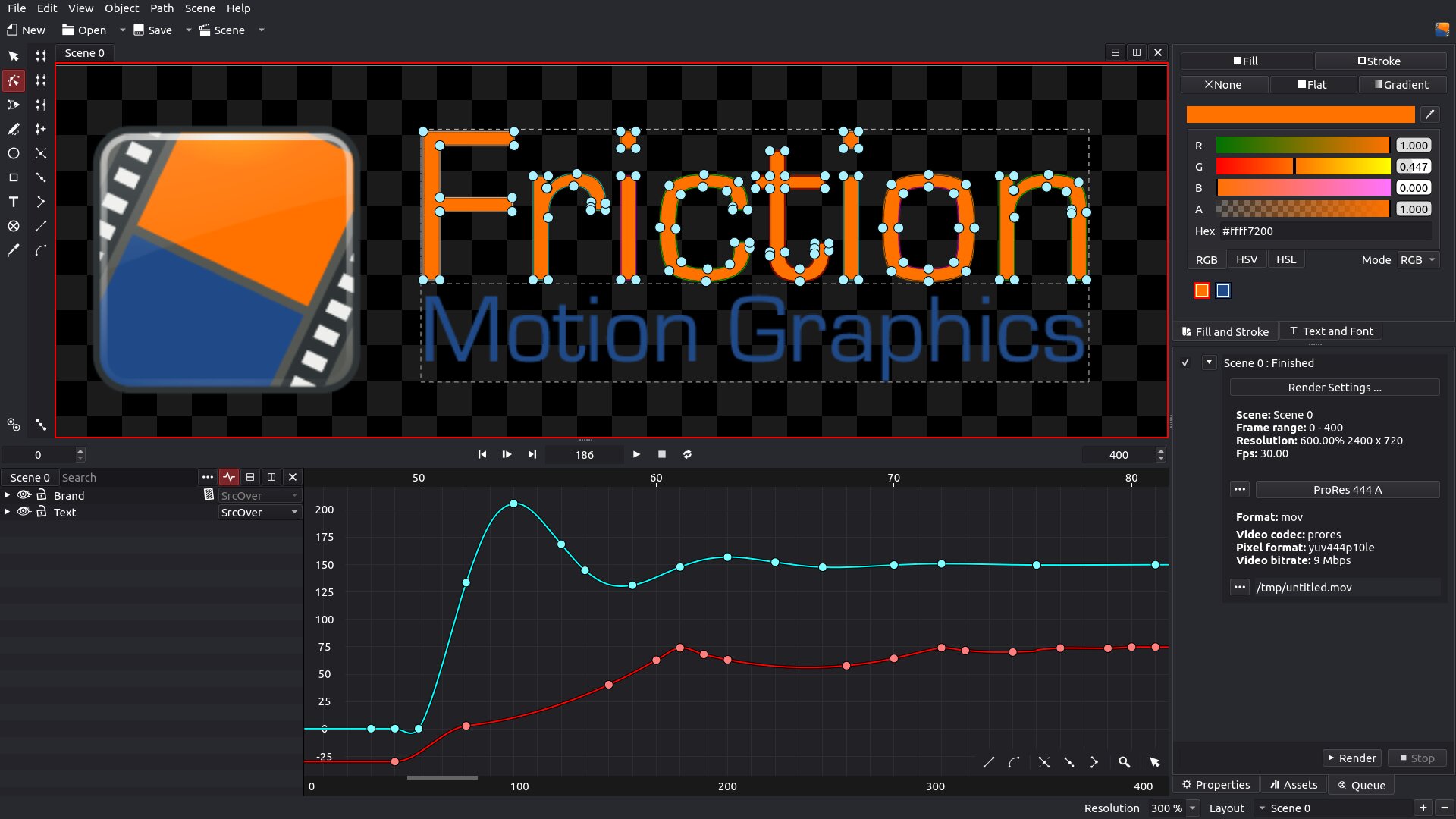
Friction provides a scalable, high-performance GPU/CPU vector and raster pipeline developed in C++, using Skia and the Qt framework.
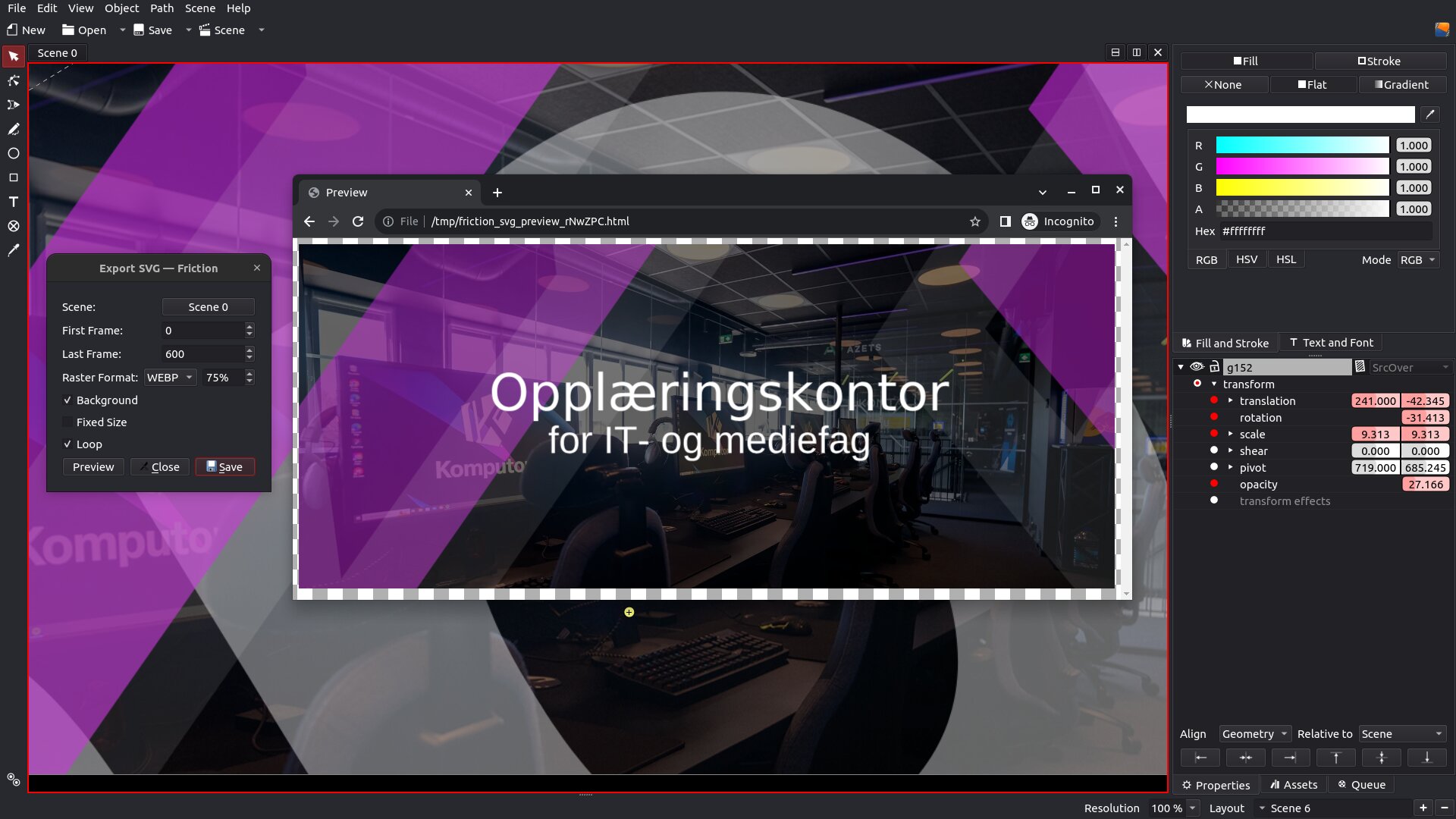
Create smooth and responsive animations for the web with Friction! Using Friction, you can create animated scalable vector graphics (SVG) using the synchronized multimedia integration language (SMIL), as recommended by the World Wide Web Consortium (W3C).
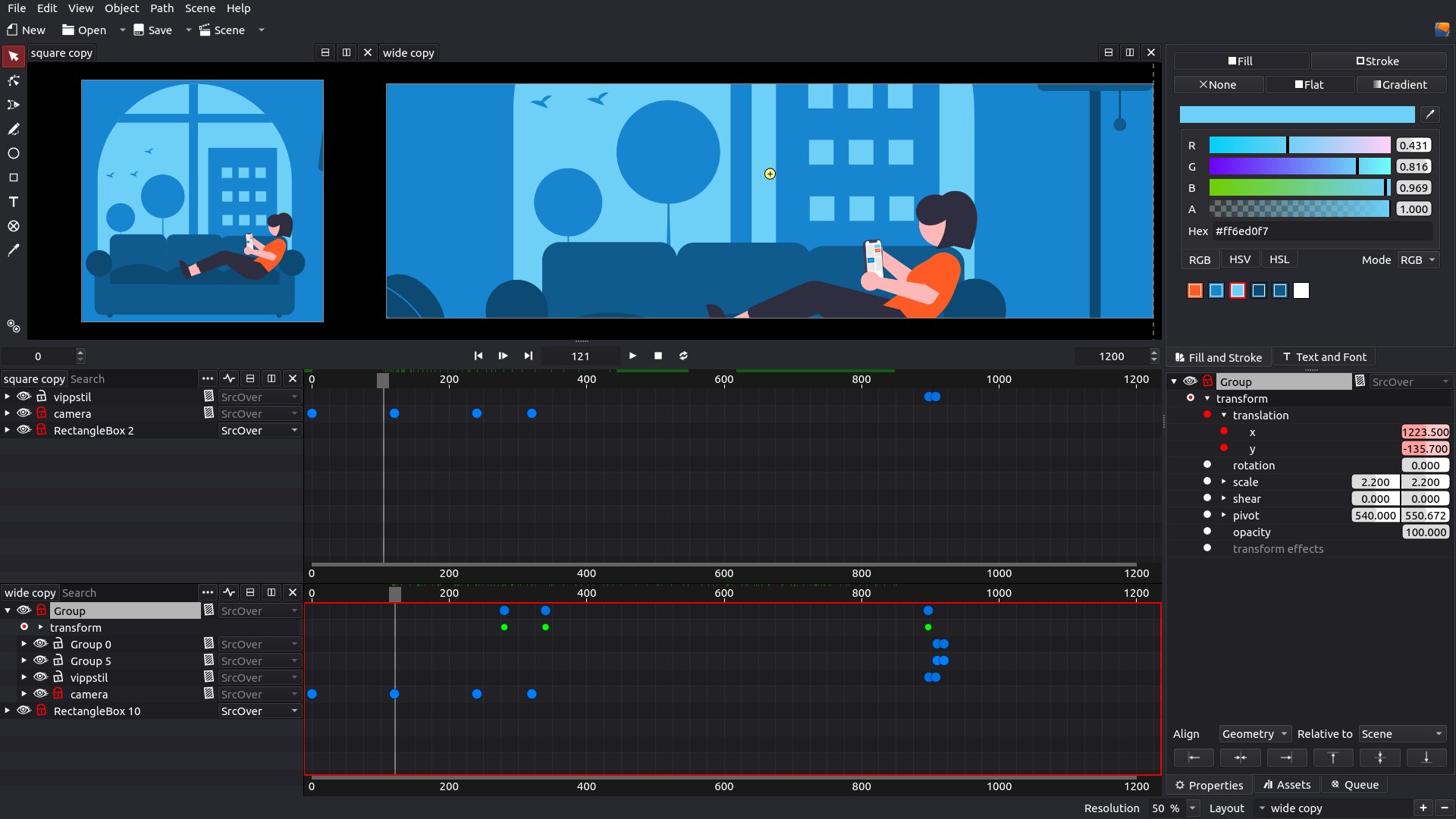
Friction gives you the flexibility to work on multiple scenes at once, with multiple viewers, timelines, and graphs. Adjust it to fit your needs and screen real estate.
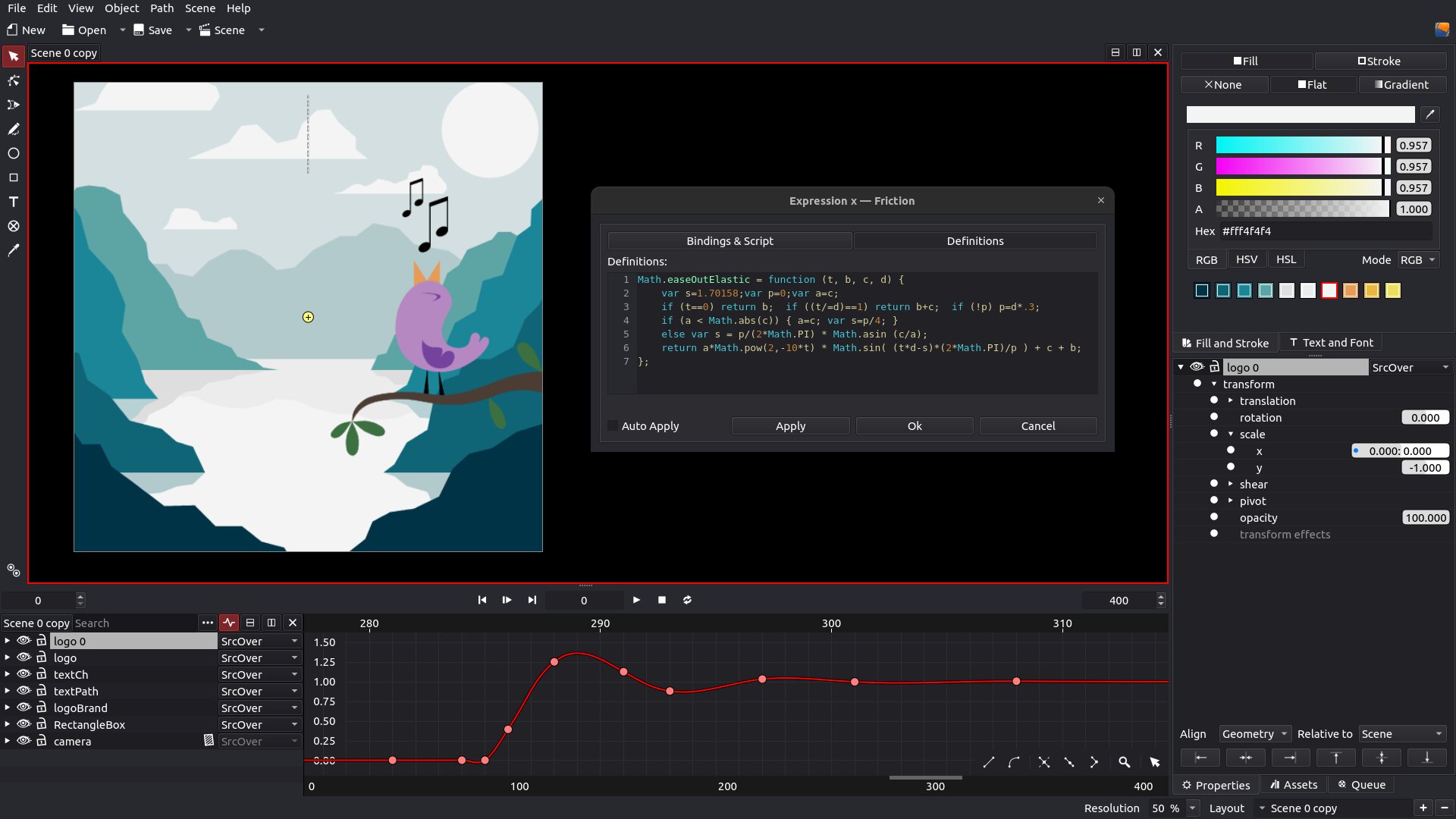
Power users are welcome! Friction provides support for expressions with ECMAScript in parameters and effects. Additionally, it includes a complete code editor with autocompletion, syntax highlighting, custom functions, and more.
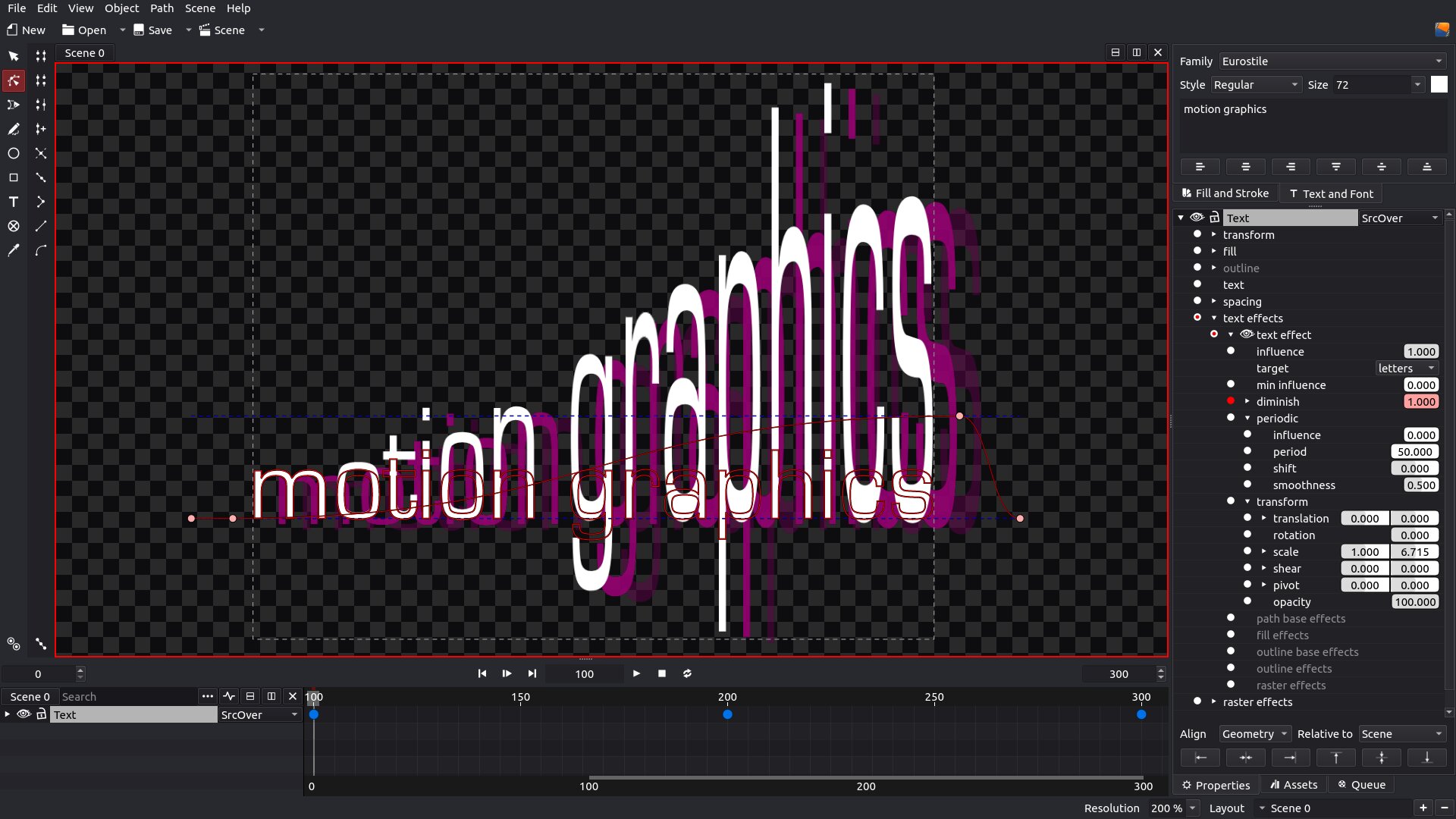
Friction includes a diverse range of effects for enhancing your vector graphics and text. Stay tuned for upcoming releases, as we continue to expand our collection of effects.
Most computers in use today should work just fine with Friction. The requirements are:
In general, a dual-core laptop with 8GB of RAM should be usable for small and medium projects.
Friction currently supports the following platforms:
Qt® is a cross-platform application development framework for creating graphical user interfaces as well as cross-platform applications that run on various software and hardware platforms.
Skia is an open source 2D graphics library which provides common APIs that work across a variety of hardware and software platforms.
FFmpeg is the leading multimedia framework, able to decode, encode, transcode, mux, demux, stream, filter and play pretty much anything that humans and machines have created.
The Industry's Foundation for High Performance Graphics. OpenGL® is a cross-language, cross-platform application programming interface for rendering 2D and 3D vector graphics.